Best Police Career Advice
Are you ready to find a school that's aligned with your interests?
Best Advice from 36 Leaders in Law Enforcement
We asked leaders in the law enforcement field about the best police career advice they have ever received. Here are their responses:

We have all heard of the "Golden Rule!" "Do unto others as you would want them to do to you!" Well, when we have a new officer begin their career, I spend some time with them on their very first day. And during that time, I share with them a little message that has taken me a long ways in my career and takes the "Golden Rule" to another level. If everyone they come into contact with during their career (burglary victims, parents of a runaway, vehicle stops, etc.), if they treat that person the very same way that they would want another police officer to treat their own parents (if their parents were the victim or person being stopped), then they will have a big impact in this community and go a long way in their career.
-Michael A. Keller, Chief of Police of the Andover Police Department and President of the Kansas Association of Chiefs of Police
Continue your education and the development of you police skills. Be open and flexible, think and grow. Develop a life and friends outside of police - it will keep you sane. I would also add what my first training officer told me: "Remember, Couper, everything that was illegal and wrong before you put on a badge will still be illegal and wrong."
-David Couper, former Chief of Police of the Madison Police Department (retired) and author of the book Arrested Development.
My honest response was advice from a crusty old Sergeant who I loved and admired: His advice from day one was this- "Until you have been here for 5 years you don't have an opinion, so keep your mouth shut and do your job and your opinion will matter when you have earned the right to share it". He was absolutely correct and our new recruits could benefit greatly in their careers by abiding by this advice. Other advice I received as a supervisor is: "Be slow to Anger", "Keep a good attitude", "Speak from your heart", "Treat everyone the way you want to be treated by the last guy". This is advice that has served me well.
-Terry L. Thompson, Weber County Sheriff in Utah
Stay out of the rumor mill. Do what is expected of you and a little more. Consistent improvement, support of organizational goals, and positive interact with coworkers and the public is what I'm looking for.
-Lynn Nelson, Cache County Sheriff in Utah
Treat everyone you meet as if they were the most important person on earth. Your life may depend upon it.
-Lynn Yeates, Box Elder County Sheriff in Utah
The best career advise I ever received was from Stephen Gower. He is a professional speaker that I had the honor of meeting and got to spend some time with during a training class. He said this statement, "Remember that you Mic is always on." He recounted a story that ran along these lines: "I was speaking at a conference for 100's of Law Enforcement Officers. I got finished with my portion of the conference and made a dash for the bathroom. I unzipped and started relieving myself in the urinal. I may have been a little vocal with my relief. After a few seconds, one of the people with the conference burst into the bathroom and grabbed my microphone power pack from my belt and promptly turned it off. Yes, my microphone had been on the entire time. The sound guy couldn't mute the mic." Remember that you mic is always on. You have to carefully think about what you say. People are always listening and will remember what you say long after you have forgotten what you said. People will look to you for guidance when they hit unfamiliar territory. What you say can either guide them to safety or to destruction. Choose your words carefully!
-Brain Cain, Sergeant and Chaplain with the Holly Springs Police Department
I would suggest to young adults that education is very important and being truthful in every way and always be positive. I have been a Gang Detective for many years and was told in my early career that if you "ask a question during your investigation, and you don't have the answer for it, your investigation is not complete".
-Gene Ballance, Vice President of the Virginia Gang Investigators Association
What I was told awhile back was to always know your audience. Both in and out of the station. As a person in uniform, you are always looked at, stared at and commented about. So act like you are always on camera. Act professionally and respectfully and all will fall into place.
The other thing I was told is to separate your professional and personal lives as much as possible. You cannot bring either one into the other and keep your sanity. It's good at work, bad at home. Good at home, bad at work. Bad at both and very rarely good at both at the same time. Share the funny stories and leave the garbage in your locker. Make sure you decompress and don't act so stoic you develop ulcers.
This is a great profession and not for everyone. Approx 1% of the applicants make it through the academy and 30% of those make it through to a full career and healthy retirement. So you gotta ask yourself 'Do you feel lucky?' I have been with an outstanding department and never had a bad assignment.
-Matt Findlay, President of the Ventura County Deputy Sheriffs' Association
There are always two sides to every story and somewhere in the middle lies the truth. Never turn down a promotion even if it means a move to a place or position you did not want to work in.
-Jim Craft, Lafayette Police Chief and 2nd Vice President of the Louisiana Association of Chiefs of Police
The best police career advice I ever received was from my father, a 42-year law enforcement veteran, who spent many years as Chief of Police. He said "you can't do this job without the full support of your community and the backing of your department. Your honor, integrity, and reputation are vital to your success."
I have taken that advice to heart and frame every decision I make by conducting an ethical double-check. You must do the right thing, even when no one is looking. I use one simple test, by asking myself how I would feel if my behavior or actions were printed in the headlines of the morning newspaper, for the entire world to read, including my mother, brother and sisters.
To be successful in this career you need to conduct a self-assessment on a daily bases. You must constantly prepare yourself for tough decisions by playing different scenarios in your head and asking your-self the "What if" questions. What would you do or how would you act if you were placed in that situation. Of course you can never pre-plan for everything you may encounter in your career, but if you do this, you will be far better prepared when faced with ethical dilemmas.
-Fred W. Hayes, Chief of Police of the Joliet Police Department and 3rd Vice President of the Illinois Association of Chiefs of Police
Have a passion for your job and the people you serve. Use every call and contact to make a positive difference. Treat everyone the way you would like to have your family or friends treated. Building trust internally and externally is the key to policing. Trust takes a long time to build but only seconds to destroy. Your integrity is the only thing YOU can lose. No one can take it from you. You have to give it up.
-Frank Kaminski, Chief of Police of the Park Ridge Police Department and 4th Vice President of the Illinois Association of Chiefs of Police
The best advice came from my father who told me to treat people how I wanted to be treated until they gave me reason not to. I've been in law enforcement for over 31 years the first 21 with the US Army Military Police Corps. I've done law enforcement operations in Europe, North America, Asia, and Central/South America. The last 10 years I've been with the Missoula Police Department serving in the Patrol Division for the first 5 years and currently assigned to the Office of Professional Standards as the Training Officer. I'm a Montana POST Certified Professional Instructor and teach Weaponless Defensive Tactics, Ground Fighting, PR-24 Baton, Taser, Multi-Media Deadly Force and Tactical Communications (Verbal Judo). In short my father gave me the best advice and I've used that advice throughout my career in the military with young soldiers and now with young officers.
-Truman K. Tolson, Training Officer at the Missoula Police Department and Past President of the Montana Police Protective Association.
You should concern yourself with the job you are doing and don't worry about what the other guy is doing. There are a lot of egos in law enforcement.
-James F. Kilmer, Sergeant at the Butte-Silver Bow L.E.D. and Treasurer of the Montana Police Protective Association
I received two very simple pieces of advice from a very senior officer when I first started this job.
1) Be an ethical professional. People will immediately know if you are honest and competent. Prepare for your job as a professional and expect those around you to be professional. Speak like a professional (no cursing) and look like a professional (be sharp). There is never a need to curse or belittle any person for any reason. Never forget your Code of Ethics, and strive to make your community proud of your Department. Take the time to explain your actions and decisions to the citizens around you. Even if they disagree with you, they will appreciate that you took the time to treat them respectfully and not as an occupying force.
2) Be calm and in control. Too many officers seek to control people by overpowering them with an authoritarian attitude. Do not fall into that trap. Be in control of yourself, and people will follow your lead. Be calm in the face of chaos and keep the big picture. Avoid using force unless it is absolutely required, and then use only the amount necessary to meet your goal of controlling the situation. Do not get caught up in the emotional hype or drama of the situation because it will cloud your judgement. People call 911 because they are unable to control a problem, and they expect you to be confident, calm, and in control of yourself.
-Jim Foster, Vice President of the Long Beach Police Officers Association
The best advice I received as a young police officer is never forget where you came from. Often times people will go through the ranks and "change" , how they treat people, how they act, their priorities, etc. I take pride in the fact that most people will say I am the same person they knew 20 years ago, and it has positioned me well for promotions and leadership positions.
-Sandra Spagnoli, Police Chief of the City of San Leandro and President of the California Peace Officers' Association
Do not ever stop learning (don't become stale in accomplishing your job duties).
The world has changed overnight on how business is conducted, how people communicate, and, most important, how people learn. A good foundation in the criminal justice system is a prerequisite for a career in law enforcement, but one needs to bring other knowledge to the department. Public administration, organizational behavior, computer science, political science, mathematics, English, psychology, etc. are used every day in modern policing.
-John Standish, Board Member of the California Peace Officers' Association with 32 years of service with California state law enforcement.
Know what success looks like. If you want to survive and succeed in this profession then research, study then emulate the behavior, character and style of law enforcement leaders who have been successful in each phase of their career. Then apply that practice to every aspect of your life.
-Paul F. Sireci, Chief of Police of the Tampa International Airport Police Department and President of the Florida Police Chiefs Association
I was told at a very young age to always treat people as you would want to be treated.
-Stephan Dembinsky, Chief of Police of the Daytona Beach Shores Police Department and Board Member of the Florida Police Chiefs Association
The best advice I ever received was that the grass is never greener on the other side. Every agency is a bureaucracy and even though the managers may change they still have to follow similar rules and regulations. Thus it would be more beneficial to stay at an agency till you are able to retire, instead of moving around from agency to agency.
-Andrew Scott, Sergeant at the Clay County Sheriffs Office and Board Member of the Florida Gang Investigator's Association
When I was going thru the field training class with my field training officer, (a retired Navy Chief) he told me this that at first I didn't understand but now rings true:
He told me that when I got off duty and was living my personnel life to not surround myself with only law enforcement friends. I took that advice and had friends with other careers outside law enforcement. That was 16 years ago and I believe that advice helps me stay focused and not get the "burned out" feeling a lot of the officers/deputies get. Don't get me wrong, I have great friends in law enforcement, but, sometimes you need to step away and get away from all the negativity we see on a daily basis.
-Ted Roy, Sergeant at the Escambia County Sheriff's Office and Board Member of the Florida SWAT Association
The best advice I have ever received in law enforcement which makes me better at my job, was from Assistant United States Attorney Richard (Rocky) Rothrock. The advice was to keep a running/current resume of all my training and to aspire for any new training or techniques within my current certifications which will make me better as a witness when testifying in court. I have also learned that teaching in front of peers and other professionals in medical and fire science makes me a better spokesperson when addressing law enforcement issues and testifying in court. I have found that specializing in certifications outside of my comfort zone makes me a better and more credible police officer.
-Daniel L. Stepleton, Special Agent for more than 22 years and Regional Director of the Iowa Narcotics Officers Association
Get a college education before you get into police work.
-Marc Povero, Detective assigned to the Gang Section and General Director of the Fort Worth Police Officers Association
Always keep your emotions in check. No suspect is worth losing your job or going to prison for.
-Ray Hunt, 2nd Vice President of the Houston Police Officers' Union
Before joining the Houston Police Department, I was an officer for the NYPD, and the best advice I ever received was from my Sergeant at the time. The advice he provided, and what I would share with aspiring officers is, always treat fellow officers and people you encounter on the street as you would want to be treated. If you do that, you will have a long and fruitful career. Another piece of advice I would pass on to aspiring officers, is to always strive to learn, attend additional training, and complete some form of higher education. As someone who holds a master's degree in Homeland Security Management, a higher education opens doors within a department, and will continue to do so in the future.
-Joe Gamaldi, Board Member of the Houston Police Officers' Union
"Take one day at a time and never look back. If you carry the events you witness everyday with you, then remove your badge and call it quits today because you will not make it. As callous as it sounds, your mind must stay fresh everyday."
-Brad Piel, Board Member of the Houston Police Officers' Union
"Duck!"
-J.G. Garza, Board Member of the Houston Police Officers' Union
I think the best advice I got is to decide what type of officer I want to be, and stick with it. Not to let any person dictate the type of officer I will be.
It may sound simple, but if you consider that throughout your career, you see the worst of things and situations and deal with the worst type of people. It is tempting (and perhaps arguably even justified) to give them what they deserve, but then you are letting them decide what type of officer you will be. Even if you don't act professionally toward them because THEY deserve it, do it because YOU deserve it. In other words, remain a professional DESPITE what others may deserve, because it is the type of officer you want to be. (more.....)
A Career in Biometrics, No Specialized Degree Required

Biometrics is no longer only the realm of forensic technicians and science fiction. Advancing technology, including phones that permit users to lock and unlock their media devices using a fingerprint, has made biometrics increasingly more mainstream.
Beyond media devices, biometrics allows governments and corporations to enhance and extend security measures, and is even being utilized in targeted marketing. The increasing utility of biometrics as technology catches up to practices that were previously the domain of thought experiments has meant an expansion in job opportunities in the field of criminal justice and beyond. (more...)
Interview with John C. Goudie, President of the Paralegal Association of Wisconsin
We recently had the chance to talk to John C. Goudie, the president of the Paralegal Association of Wisconsin. In this interview we discussed some of the activities involved in working as a litigation paralegal, the paralegal job market, and advice for getting started in the paralegal field.
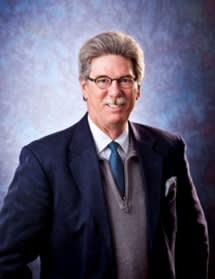
Can you describe your career path to your current position?
I started my career in 1987 working for a small personal injury firm. I was hired primarily because I had a medical background and could read and interpret medical records. Prior to the days of HIPAA, you could go to a hospital and review medical charts without an authorization. My attorney would have me review the records of prospective clients to determine whether we were interested in handling the injury claim. While with that firm I began assisting the attorney who did the Workers Compensation cases. When she left, I went through the process of becoming licensed to appear before the Workers Compensation Division and then continued to represent injured workers with that firm for the next 14 years. When I left that firm, I worked for the staff counsel office in liability and injury insurance defense for approximately three years, then went back to a plaintiff's firm and worked in the area of nursing home negligence and abuse for approximately three years. I then went to work for a health insurer in the area of Privacy and Regulatory Compliance, working as the paralegal for the group that would work with development projects for compliance with privacy and regulatory issues, as well as working on investigations dealing with foreign assets issues. My present position in health care law and corporate compliance is a composite of skills and experience obtained in all of the above. (more...)
Interview with Kristine M. Custodio, President of the San Diego Paralegal Association
We recently had the great opportunity to interview Kristine M. Custodio, the current president of the San Diego Paralegal Association. We discussed what it is like to work as a litigation paralegal, advice for getting started in the paralegal field, and the job market in San Diego for paralegals.
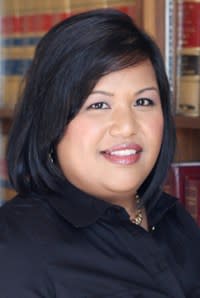
Can you tell us why you decided to become a paralegal?
I did not originally plan to become a paralegal. In 1998, I received a bachelor's degree from the California State University Long Beach in Human Development with an emphasis in physical therapy and was planning to obtain my graduate degree in the field when my mother became ill. I returned to San Diego that same year where I succeeded my mother as the administrator to my family's residential facility for adults with developmental disabilities. I am still involved with my family's business to this day. (more...)
Interview with Karen R. George, President of the South Florida Paralegal Association
We were very fortunate to have an opportunity to interview the President of the South Florida Paralegal Association, Karen R. George, FRP. She shared some great insights into her work, interesting cases she has worked on, and advice for getting hired in the paralegal field.
Can you describe how you got started in the paralegal field?
I began working as a paralegal in approximately 1994 while working for a large medical malpractice defense firm in Miami, Florida. At the time, I was working as a word processing supervisor and the AIDS cases started coming into the firm. Kimberly Shapiro, Esq. was the attorney assigned to defend these cases against the local blood banks and PPTF (Physicians Trust Fund) which was financial/insurance end of the local public hospital - Jackson Memorial Hospital. Kim, her husband Judge Sidney Shapiro and I were friends and I was fortunate enough that Kim chose me to work with her on these new cases. After working on those cases for a while, I began a paralegal certificate class at Florida International University however, a large trial took me away to another county for an extended time and school got lost in the shuffle.
Can you give example of what a day at work might be like for you?
There is no set day for a paralegal. In my case, I can open my e-mail at the office, receive an e-mail that will send me anywhere for any amount of time. I could end up at the Court, at a hospital, at a client's office, at one of our other offices, it could be anywhere. I could have a good day and be able to address what is in my in-box, discovery, motions, orders, research, it is difficult to know what is going to show up on a given day. Sometimes I end up translating from English to Spanish and vice-a-versa at some accident site. I wear many many hats as a paralegal for my firm. I am sorry I can't be more specific.
Can you share an interesting case or project that you worked on in your career that is particularly memorable? (more...)
Interview with Retired Police Chief and Author David Couper
We had the great opportunity to interview David Couper who was formerly the Madison Wisconsin Chief of Police and has recently written his first book titled Arrested Development: A Veteran Police Chief Sounds Off About Protest, Racism, Corruption, and the Seven Necessary Steps to Improve Our Nation's Police. We discussed his career progression to chief of police, advice for new police recruits, and the importance of a college degree for law enforcement professionals.
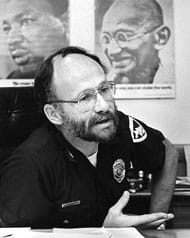
Can you tell us why you decided to choose a career in law enforcement and how you got your first job in this field?
I go over this in my new book; the career path I took and how I was inadvertently preparing to lead a police department just like Madison. After high school (1956), I signed up for a tour in the Marines. I wanted to be an officer but knew that I needed to have a college degree. After my enlistment, I returned to my hometown, Minneapolis, and enrolled at the University of Minnesota. But I now had a wife and infant son and I needed a job, preferably at night, so I could attend classes at the university. That led me to seek a police job. There was an old saying that all you could do after a tour in the Marines was be a janitor or a cop. I was tired of swabbing decks.
What was your career path from when you started in law enforcement until you were promoted to Chief of Police?
My first job was as a patrolman in Edina, a suburb of Minneapolis. I was 21 years of age and could not apply to the Minneapolis department because the age of application was 23 at the time. (more...)
Interview with Barbara Liss, President of the Santa Barbara Paralegal Association
We recently interviewed Barbara Liss, the president of the Santa Barbara Paralegal Association. She shared some great insights into the variety of tasks that a paralegal career may involve, what it is like to work on a trial, and advice for new paralegals looking for their first position.
How did you get started in the paralegal field?
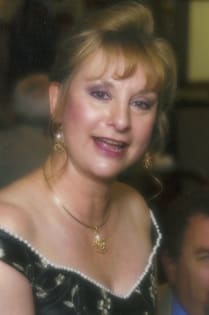
When I first moved to California in 1972, I managed the apartment building in which I lived. The owner liked me and hired me to work in his office; after reorganizing it in short order, he ran out of work to give me, so introduced me to a friend, who was an attorney, just starting up a general solo practice after having made a mid-life career change. We learned procedural work together. When he left solo practice to accept a position with a large, downtown Los Angeles firm, I accompanied him - it was the mid-1970's and my title was then "legal secretary," although much of what I did was paralegal work. Eventually, I took my first position as a paralegal, where the title was "pseudo-paralegal" because the firm was afraid to use the actual title.
After bouncing between legal secretary and legal assistant/paralegal jobs, I took the UCSB extension legal assistant program classes at night and acquired my certificate. When I started working in complex business trial litigation, I took the title "trial paralegal." By the mid-1980's word processing and secretarial work were more specifically the realm of legal secretaries and word processors while working with evidence, discovery and witnesses in preparation for and attending trial were more clearly defined as paralegal work assignments, the field in which I worked. After 35 years of prepping for and attending complex civil litigation trials in state and federal courts, I changed the direction of my career and transitioned into Wills, Trusts, Probate and Estate Administration work, where I currently practice and have done so for the past five years. (more...)
Interview with Mariana Fradman, New York Real Estate Paralegal
We were very fortunate to have the opportunity to interview Mariana Fradman who is the President of the New York City Paralegal Association Inc. and an accomplished real estate paralegal who also holds a master's in business administration. We discussed what it was like to become a paralegal after immigrating from Ukraine, what her job is like, and her advice for paralegals.
Can you tell us what inspired you to go into the legal field and how you got your first job as a paralegal?
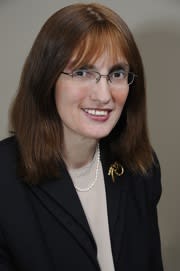
I would disappoint many people, but I wasn't inspired by anything or anyone to go into the legal field. The legal field "found" me. After I finished English Second Language (ESL) course at New York Association for New Americans (NYANA), I was at a crosswalk: majority of immigrants from the former U.S.S.R. entered the computer science field or medical field. None of those appealed to me. I don't like to deal with blood, bones and muscles and anatomy was never my favorite subject (although I was an A student :-)). I also was skeptical of how many programmers the country needed (had a good vision - remember dot.com?). So, I went to Long Island University (LIU) for another semester of English. In one of the classes I met a former psychiatrist from Kiev who gave me an advise: "Buy any newspaper, open "help wanted" section, close your eyes and put your finger on the page. Open your eyes and see what you picked. Go and learn the skill for one year. In a year, you will know if the choice was right or not, but for a year, you will be busy doing something and it would give you a piece of mind." I didn't follow his advise step by step, but went to a college's admission office, walked to a display with brochures of different majors that were offered at that time and, with my eyes closed, picked one. It had information about the Paralegal Studies Program. (more...)
Interview with Personal Injury Paralegal Jamie Collins, Founder of The Paralegal Society
Jamie Collins generously agreed to participate in a paralegal career interview with us to share her experiences working as a paralegal at a personal injury law firm and her advice for being successful in this field. Jamie Collins is a litigation paralegal in Indiana with 14 years of experience and writes a column for the paralegal magazine KNOW. She is also the founder of The Paralegal Society, a mentorship and community site for paralegals.
Can you tell us why you chose to become a paralegal?

It was luck or fate, I'm not sure which. I interviewed at a small law firm on my birthday 14 years ago and landed my first legal job working as a part-time receptionist. They eventually offered to pay for a portion of my paralegal degree, so I took classes at a local college and worked three days per week. I continued to hone my paralegal skills and eventually, I was hired on full-time. I worked at that firm for 6 years and learned so much from the attorneys for whom I worked. It was an ideal fit for me.
I really enjoyed working in the paralegal realm and offering my expertise and skills to help people in their time of need. I really love what I do! I'm now fourteen years into my career and I still find it to be a challenging and extremely rewarding on a daily basis. Although luck or fate brought me into the legal profession, it is my passion for the paralegal field that keeps me here. I absolutely love it.
What was your experience like when attending college as a paralegal student?
I put the cart before the horse in the work/educational realm. I worked in a law firm for nearly two years prior to attending college to obtain my paralegal degree, so for me, it was a unique experience. I already knew much of what was being taught. It definitely made me a lot more confident as a paralegal student to already have a legal job and daily access to the "smart" attorneys I worked around if I had a question or needed to learn something new. I was more interested in learning all of the nuances of law because I knew the paralegal field was where I wanted to be. I enjoyed learning additional areas of law during my paralegal studies, but ultimately, realized I was already working in the area of law best suited for me: personal injury and wrongful death law. (more...)
The High Cost of Drunk Driving Infographic

Infographic by Criminal Justice Degree Schools
Add this infographic to your site:
<a href="/"><img src="/assets/img/placeholder.png" data-src="https://res.cloudinary.com/highereducation/image/upload/c_fill,f_auto,fl_lossy,q_auto/v1/CriminalJusticeDegreeSchools.com/media/the-high-cost-of-drunk-driving.png" class="lazyload"></a><br>Infographic by <a href="/">Criminal Justice Degree Schools</a>
Latest Posts
Take the next step toward your future.
Discover programs you’re interested in and take charge of your education.